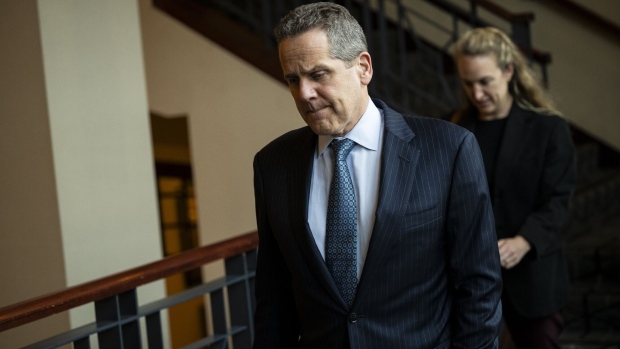Mar 22, 2024
Fed’s Barr Says Changes to Capital Rules Likely to Be Significant
, Bloomberg News

(Bloomberg) -- The Federal Reserve’s top banking regulator said there will likely be significant changes to a controversial plan to force big lenders to hold more capital — another signal that Wall Street’s efforts to scuttle the initial proposal are succeeding.
Michael Barr, the Fed’s vice chair for supervision, said Friday that criteria related to operational, market and credit risks could be adjusted. The sweeping proposal, which was released last July, sparked a fierce lobbying campaign by some of the biggest players in finance.
“We expect to have a set of broad and material changes to the rule” to achieve consensus on the Fed Board and among other regulators, Barr said at an event at the University of Michigan.
Barr’s comments about looming adjustments largely echoed those of Fed Chair Jerome Powell earlier this month. Still, Barr is thought of as the chief architect of the July plan.
Read More: Wall Street Gets Big Win as Powell Floats Scrapping Capital Plan
“I am working very closely with Chair Powell and other members of our Federal Reserve board to try to reach a broad consensus,” Barr said Friday.
Under the July plan, the eight largest banks would face about a 19% increase, with lenders between $100 billion and $250 billion in assets seeing as little as 5% more, government officials have said. Banks have argued they are already well-capitalized to withstand a crisis and that the changes would ultimately hurt consumers.
The proposal from the Fed, Federal Deposit Insurance Corp. and the Office of the Comptroller of the Currency is tied to the Basel III international overhaul that started more than a decade ago. Supporters have also billed it as a fix for some of the issues exposed by the failures of Silicon Valley Bank and Signature Bank.
Powell, Barr, and other senior Fed officials need to vote on a final plan before any rules can take hold. The initial proposal cleared with an unusually close 4-2 vote, while Powell and Fed Vice Chair Philip Jefferson expressed reservations. The Fed chair decides when to put a measure before the central bank’s voting members, while the FDIC and OCC also need to approve a final version.
If the Fed and other regulators were to repropose the plan entirely it could push back its ultimate adoption. The political stakes are also high with November’s election looming.
A consolidation of power by Republicans, who have been generally receptive to the industry’s arguments, would further hamstring the effort. Some Democrats have also raised questions about the proposal.
(Updates with comments from Barr starting in fifth paragraph.)
©2024 Bloomberg L.P.


